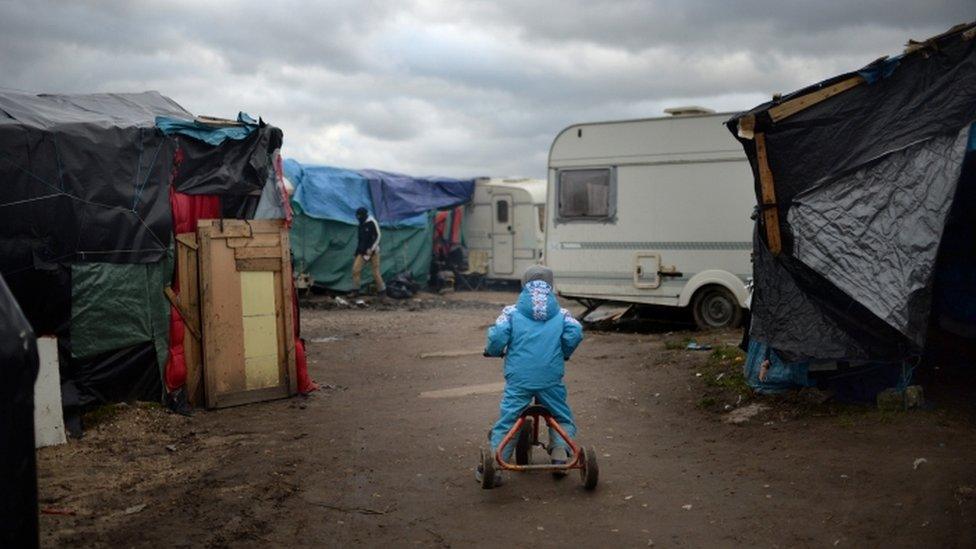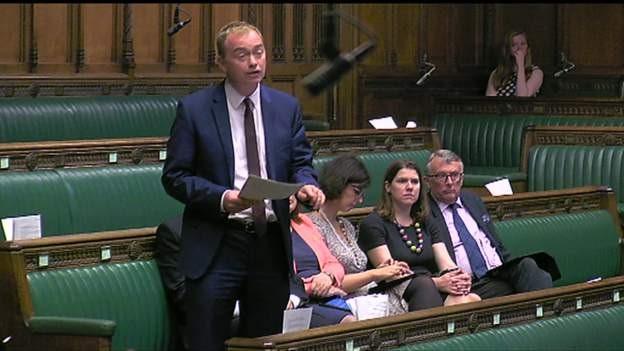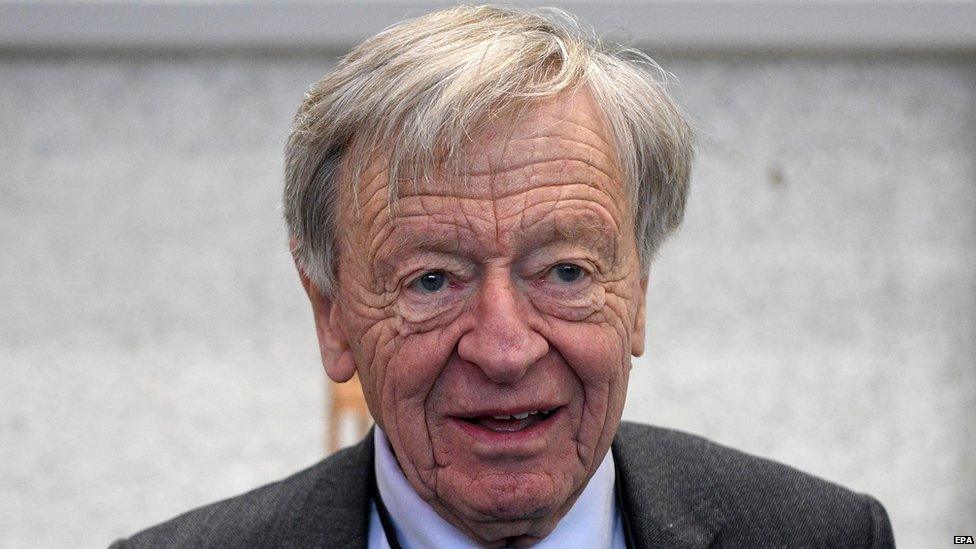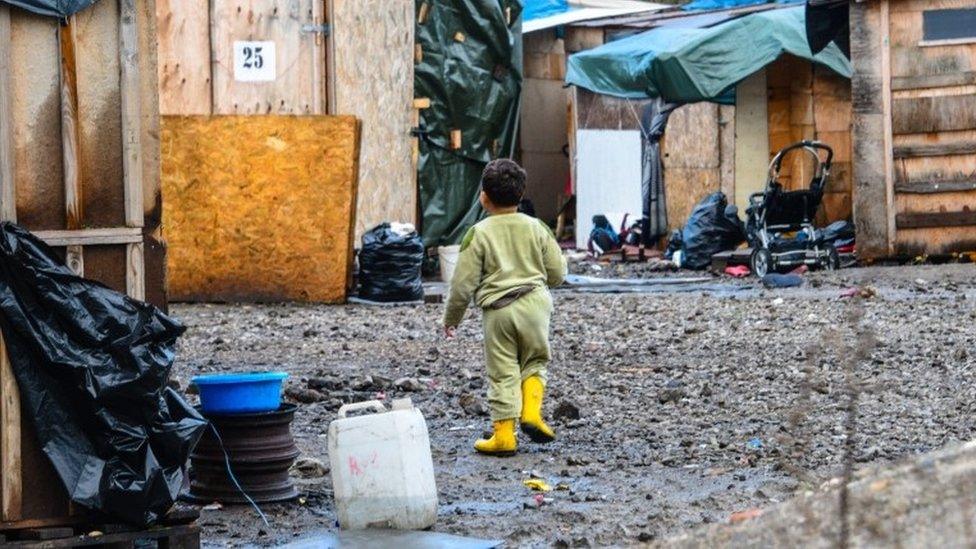Tim Farron calls government 'heartless' over child refugees
- Published

A child in a Calais refugee camp
The government has imposed a "heartless" cut-off date for a scheme to help child refugees, according to Lib Dem leader Tim Farron.
He raised the case of two young people waiting in Greece for over a year for transfer to the UK who had been hit by the "arbitrary" deadline.
Children must have arrived in Europe before 20 March 2016 to be eligible to come to the UK.
Ministers rejected his claim that councils could take more refugees.
Mr Farron called the government's commitment to take 480 unaccompanied child refugees, which the government says was agreed with local authorities, "measly" and said it had admitted recently that the UK had only taken 200 last year.
"Freedom of Information Act requests show that local councils have voluntarily offered to accept 1,572 more children, in addition to those they already support," Mr Farron added.

Tim Farron said the government had made a 'measly commitment' to child refugees
He said he was aware of two young people who signed a consent form to be transferred under the so-called Dubs scheme in 2016 but are "still stuck" in Greece, while the government had imposed an "arbitrary" cut-off date for the scheme.
"In the light of the delays, which are the government's fault, will they now extend this date, which is as heartless as it is pointless?" he asked.
Immigration Minister Brandon Lewis said transferring children under the Dubs scheme was in addition to the government's commitment to be resettle 23,000 people from the Middle East region.
"We have already granted asylum, or another form of leave, to over 8,000 children. Local authorities across the county are currently supporting over 4,000 unaccompanied asylum-seeking children," Mr Lewis said.
He added: "Our approach continues to be to take refugees directly from conflict regions, providing refugees with a more direct and safe route to our country, rather than risking hazardous journeys to Europe."

The law was designed by former child refugee Lord Dubs
The so-called "Dubs amendment" was named after campaigner and Labour peer Lord Dubs, who came to the UK as a child refugee before the outbreak of the Second World War.
Lord Dubs' amendment required the UK government to provide assistance to unaccompanied child refugees, who arrived in Europe with no family connections.
Shadow home secretary Diane Abbott said she recognised the government's policy of taking refugees directly from the Middle East region - but added that children are "already there" in camps in European countries including Greece, "often living in horrible conditions and particularly at the mercy of traffickers and sexual exploitation".
Conservative MP Heidi Allen asked what Brexit would mean for the UK's commitment to giving refugees the right to join family members if they are living legally in another European country.
Mr Lewis said the UK was "determined to stick with the moral and ethical duty" contained in the EU law after it left the European Union.
Responding to the revelation that only 200 unaccompanied children arrived in 2016, Unicef UK's Lily Caprani said: "It's unacceptable that we have seen no children brought under the Dubs scheme this year."
She said "too many children" were "still having to make dangerous journeys to reach safety" and the government "must change the UK family reunion rules so that children do not have to attempt to reach Europe to be reunited with loved ones."
- Published7 March 2017

- Published9 February 2017

- Published8 February 2017